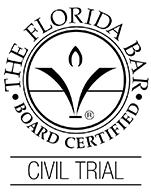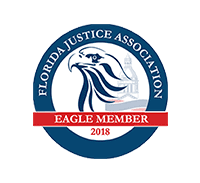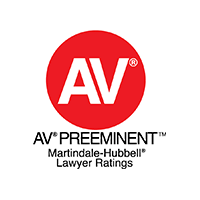If a drunk driver hits you, you should take several steps to protect your health and potential personal injury claim. For example, you should call the police, seek immediate medical attention, document the scene with photos and videos if possible, exchange information with other involved drivers and witnesses, and consider hiring a Lakeland car accident lawyer as soon as possible.
What Steps Should You Take After a Drunk Driver Hits You?
Being involved in an auto accident with a drunk driver can be devastating and have severe consequences for your physical and emotional well-being. You may also encounter legal and financial hurdles as you seek compensation for your injuries and damages.
According to Florida Statutes § 627.7407, Florida is a no-fault state for auto insurance purposes, which means you will likely first pursue compensation from your own insurance company following an accident. A car accident attorney can do this for you to ensure you maintain your legal rights.
If a drunk driver hits you in Florida, you should take other practical and legal steps to help you recover from your injuries and related losses, including the following:
Ensure the Safety of All Involved and Seek Medical Attention
After any motor vehicle accident, the first step is to ensure the safety of everyone involved, check yourself and others for injuries, and immediately seek medical attention by calling 9-1-1 if necessary.
Even if no significant injuries are apparent, you should still visit a medical professional as soon as possible so they can establish a trail of documentation for medical treatment.
Contact Law Enforcement
Contact the local police department to report the drunk driving accident. They should promptly arrive at the scene to investigate. If law enforcement suspects the other driver is intoxicated, they may perform breathalyzer and/or field sobriety tests.
Per Florida Statutes § 316.1932, if someone drives a vehicle in Florida, they give “implied consent” for these tests. A driver who refuses to participate in sobriety tests will likely receive an automatic driver’s license suspension.
Law enforcement will also prepare a police report that includes details of the accident, witness statements, traffic citation issues, and any DUI-related findings.
Exchange Personal Information
If possible, exchange contact and insurance information with the impaired driver and any other involved parties, including their names, phone numbers, addresses, insurance companies, and policy numbers. If there are eyewitnesses to the accident, ask for their contact information as well—their statements may be important later.
If police arrive at the scene, they may also collect this information for their reports. In any case, you should avoid discussing fault or arguing with the other driver, especially if they appear intoxicated.
Document the Accident Scene
If possible, document as much about the scene as possible by taking photos or videos on your phone. Capture your injuries, the vehicles involved, damage, road conditions, and any signs of the other driver’s impairment, such as open containers or slurred speech.
If your injuries prevent you from gathering evidence, do not worry. Law enforcement should document the scene thoroughly and collect other evidence during their investigation.
Consider Hiring a Personal Injury Attorney Before Filing an Insurance Claim
In the aftermath of your accident, we recommend contacting a personal injury law firm for a consultation as soon as possible. This may be especially important if the other involved driver was intoxicated.
If you file a claim before retaining legal counsel, do not agree to any settlement offers until you have secured legal representation. Insurance companies prefer to pursue an outcome that involves paying accident victims the least amount of money possible. A personal injury attorney will protect your rights and tell the insurer you are serious about collecting fair compensation for all your losses.
The insurance claim that you and your drunk driving accident lawyer file will likely seek to cover your injury-related medical expenses, property damage, and other losses due to the accident. Your drunk driving car accident attorney can help you identify and calculate your losses and determine which party or parties are liable for compensating you.
While most personal injury cases result in out-of-court settlements, some go to trial. Your auto accident attorney can advise you on the best course of action in your case and help you navigate the legal system.
File a Personal Injury Claim or Lawsuit Against the Drunk Driver
If you suffered injuries or significant property damage, your attorney may advise you to pursue a personal injury lawsuit against the intoxicated driver to seek financial compensation for medical bills, lost wages, pain and suffering, and other damages.
Per Florida Statutes § 95.11, the statute of limitations in Florida is two years for personal injury claims. This means you have two years from the accident date to pursue damages via a lawsuit.
If you do not meet this deadline, the court may bar you from seeking compensation for your losses in the future. If you hire a drunk driving lawyer, they can file your lawsuit before the statute expires and preserve your legal right to compensation.
The Drunk Driver May Face Criminal Charges and Penalties
If the at-fault driver’s blood alcohol content (BAC) exceeds the legal limit of 0.08%, they may face criminal charges for driving under the influence (DUI) or related offenses.
The severity of charges depends on factors such as the driver’s BAC, whether they have prior convictions, and the accident’s consequences, such as injuries or death. If the accident caused injuries to you or other people involved, the driver may be subject to particularly stiff penalties that result in jail time and a criminal record.
In addition to criminal charges, the driver may also face administrative penalties, such as license suspension or revocation. These penalties can further impact their ability to drive legally and may result in higher insurance premiums in the future.
Regardless of any criminal proceedings against the intoxicated driver, you have the right to seek economic and non-economic damages in a civil lawsuit. In some cases, a judge may even award you punitive damages, which are designed to punish egregious conduct (such as drunk driving) and discourage future repeat offenses.
Contact Dismuke Law and “Ask Dave” Today About Your Drunk Driving Case
Dave Dismuke at Dismuke Law can provide you with the guidance and support you need to navigate the legal complexities of a DUI accident case. Our team of legal professionals can help you understand your rights, explore potential options, and pursue the compensation you deserve.
Contact us today for a free consultation. “Ask Dave” to discuss your potential claim and determine your best course of action for getting justice.


![cftla-member[2]](https://www.1800askdave.com/wp-content/uploads/2022/03/cftla-member2.png)
![cftla-member[3]](https://www.1800askdave.com/wp-content/uploads/2022/03/cftla-member3.png)










